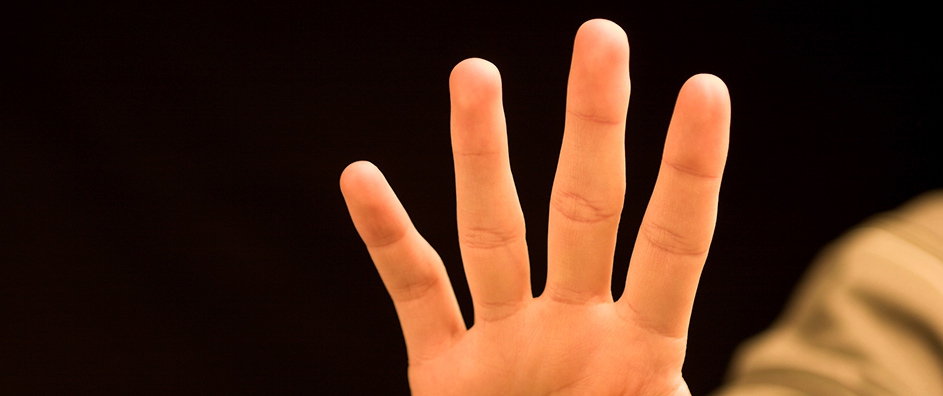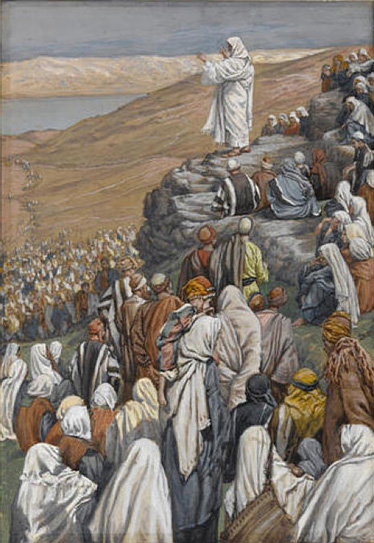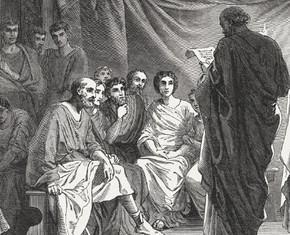The views expressed in our content reflect individual perspectives and do not represent the authoritative views of the Baha'i Faith.
When the prophets of God appear upon this earth, their validity is established by means of certain proofs. One of the proofs is through the fulfillment of former prophecies, the second proofs are their creative words and phrases which salute the hearts of humanity, the third are their deeds and the fourth are their teachings. – Abdu’l-Baha, Divine Philosophy, p. 43.
Many people have claimed to be prophets, but few actually deliver. So how do you recognize a true prophet? What criteria could you apply to decide about the veracity or falseness of a prophet’s teachings? What evidence should you focus on?
As Abdu’l-Baha said in the quote above, the Baha’i teachings recognize these four proofs of a prophet:
The fulfillment of former prophecies
The actual words of the prophet
The deeds of the prophet
The teachings of the prophet.
However: Abdu’l-Baha clearly said that the first category, prophecy—essentially, the dates and symbols which proclaim the end of each religious dispensation and the prognostications of the expected coming of a new prophet—typically don’t convince very many people. Baha’is do believe that Baha’u’llah fulfilled the prophecies of previous Faiths—but don’t solely rely on those prophetic predictions for evidence of the truth of the Baha’i revelation.
Abdu’l-Baha added that miracles, one of the traditional “proofs” of a prophet, also convince very few:
For instance, a Buddhist would not be convinced by the miracles of Moses which are proofs only so far as the orthodox Jews are concerned, because they love Moses. On the other hand the miracles attributed to Jesus Christ are refuted by the Jews as a whole, saying “No one lives today who has seen these miracles performed, therefore, who can bear testimony to them?” – ibid, p. 44.
The Baha’i teachings don’t emphasize prophecies and miracles, probably because they recommend analyzing the truth claims of religion from a more practical, observable and scientific point of view. The real crux of this highly important issue, Abdu’l-Baha suggests, involves the life, deeds and teachings of the prophet:
The Sermon on the Mount by James Tissot
A supreme proof is the teaching. For instance the precepts of Christ were sufficient proof of his validity. There is no greater proof than these teachings. They were the light of that cycle and the spirit of that age. All that he said accorded with the needs of the humanity of that time. They were peerless and unique.
Consider His Holiness Baha’u’llah and his teaching. They are the spirit of this cycle – the light of this age. They illumine the dark places of humanity, for they address themselves to the heart of the race. For instance, the greatest evil of this century is war. In the new age Baha’u’llah has prohibited war. The need of this century is universal peace – Baha’u’llah has instituted it. The most urgent requisite of mankind is the declaration of the oneness of the world of humanity – this is the great principle of Baha’u’llah. That which will leaven the human world is a love that will insure the abandonment of pride, oppression and hatred. The principles of Baha’u’llah are the remedy and balm for the wounded world; and without their inculcation, reconciliation between the nations will not be reached. These very teachings of Baha’u’llah are the greatest proofs of his claim. Such a power hath appeared from him as will suffice to convince the whole world.
The proof of the sun is its light and heat. – Abdu’l-Baha, Divine Philosophy, pp. 43-46.
Baha’u’llah spent forty years suffering through torture, exile and imprisonment to proclaim the Baha’i teachings of universal peace, love and oneness. Despite his exile, impoverishment and incarceration, Baha’u’llah’s Faith has spread to every culture and nation in the world. Today, just a little more than a century since his passing, the Baha’i principle of unity—which exemplifies Baha’u’llah’s words, deeds and teachings combined—has already begun to gradually bring humanity closer to his vision of a unified world.
Of course, now that you know about Baha’u’llah and the Baha’i Faith, you’ll most likely want to make your own decision about the truth of the Baha’i teachings. Baha’is welcome and encourage that search, and simply ask everyone to decide for themselves, without pressure or proselytizing, what they believe. In the next installment in this series of essays, we’ll look at how to apply the proofs of a prophet to Baha’u’llah’s revelation.
May our eyes be ever awake; may the windows of our minds be flung awide, so that when the messenger appeareth, we may not be deprived of his glory through the veils of preconceived ideas; so that when the heavenly herald shouts the word of God, we may not be deaf; so that when the holy fragrance of the paradise of the Almighty be diffused, our nostrils may not be afflicted with cold. May we be enabled to inhale the perfume, behold the splendor, hearken to the voice and be regenerated with the spirit of the new day. – Abdu’l-Baha, Divine Philosophy, p. 171.

















Comments
Sign in or create an account
Continue with Googleor